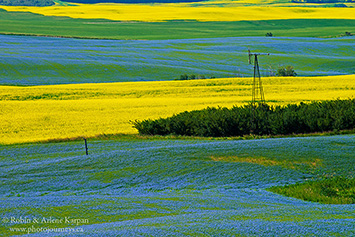
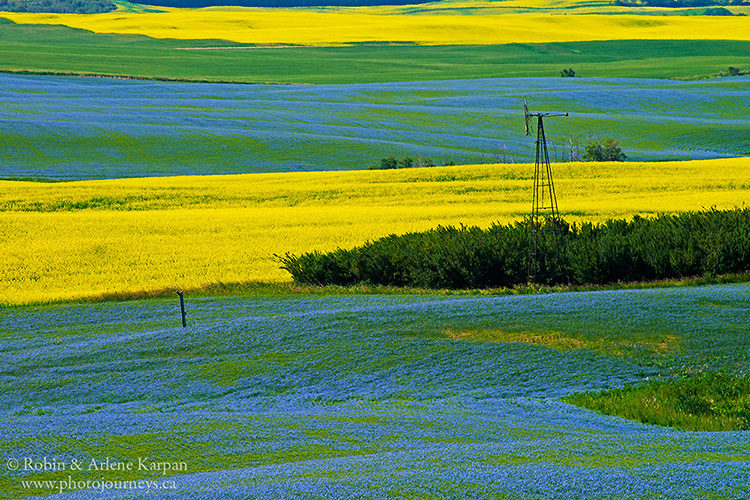
Big, bold, in your face yellow, and practically begging to be photographed. Fields of canola can bring a landscape to life. The golden-blossomed oilseed crop is grown in many parts of the world, but is especially prevalent on the Canadian prairies. Here in Saskatchewan, we have the world’s largest production, so finding canola is usually as easy as driving down almost any road.
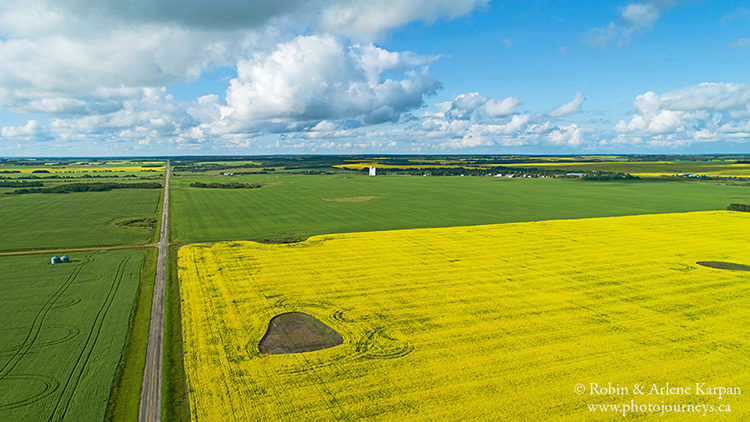
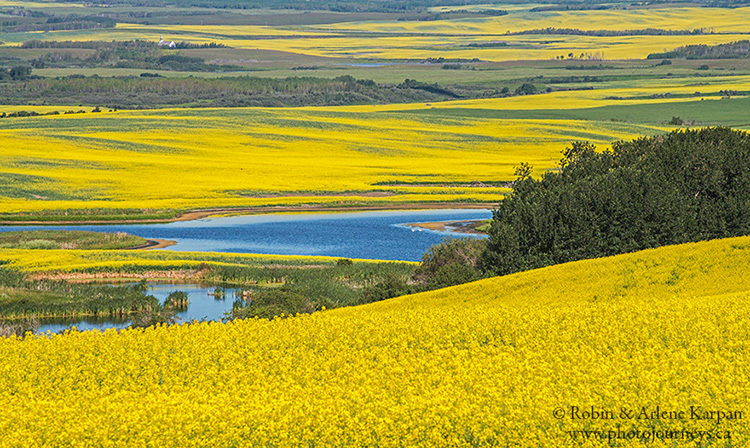
Canola is a cool season crop, so it tends to be more common in the northern grain belt than in the far south. Around Saskatoon, where we live, you see it everywhere. Prime time to find canola in bloom is around mid-July, though conditions may vary from year to year, with some blooming in early July and some late-seeded crops reaching peak blooming even into early August.
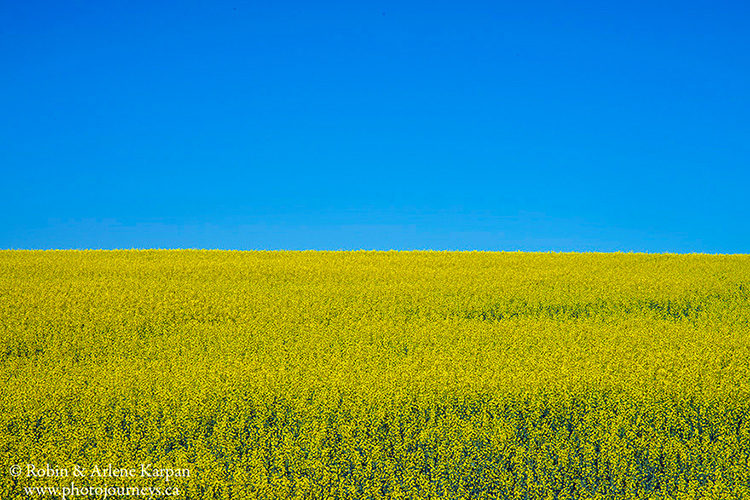
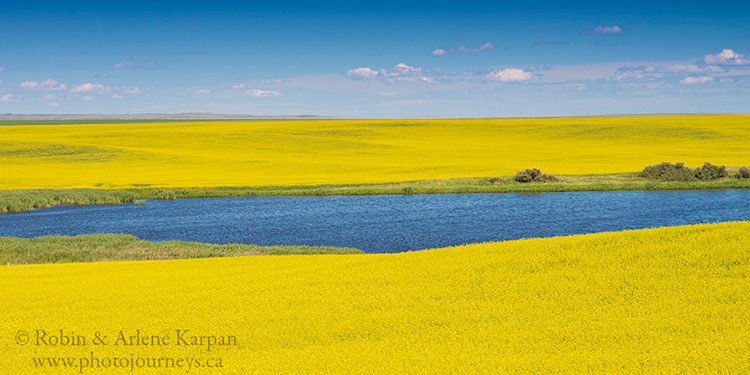
Areas that we especially like for photography include the Thickwood Hills (northeast of The Battlefords, northwest of Blaine Lake) or the hills east of Redberry Lake. These areas have a lot of variety in landforms, so we get splashes of yellow from canola mixed with bushlands, small lakes, wetlands, and old farmsteads.
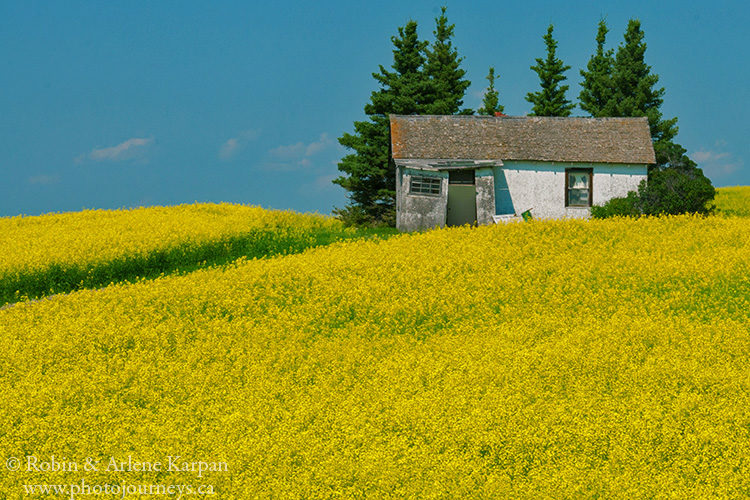
Canola fields can make a colourful backdrop for photographing buildings such as grain elevators (especially the traditional old wooden ones that are fast disappearing), abandoned buildings, or country churches. Another area we like is northeast of Saskatoon, such as around the tiny community of Smuts, where we sometimes find canola fields next to onion-domed Ukrainian churches.
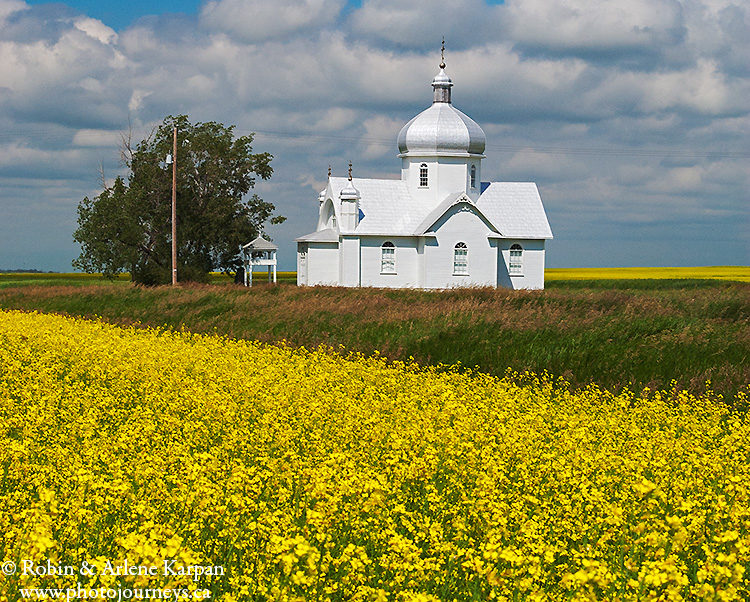
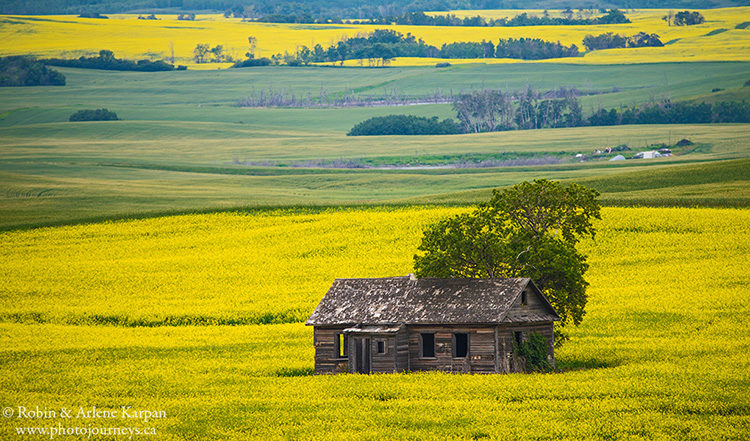
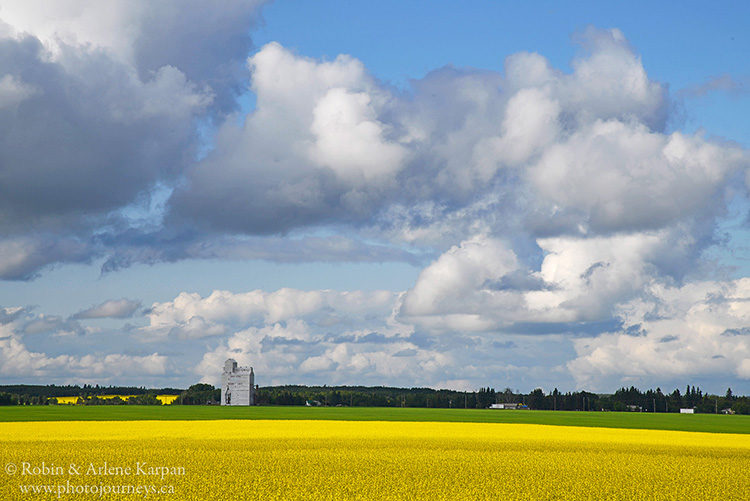
Our personal favourite is to try to find canola next to a flax crop in bloom. The blue from the flax next to yellow canola makes for an interesting melding of primary colours. However, this combination is not very common and it’s usually a short window to find both crops blooming at exactly the same time. While flax is grown in many parts of Saskatchewan, our go-to area to try to find flax and canola together is usually around Redberry Lake.
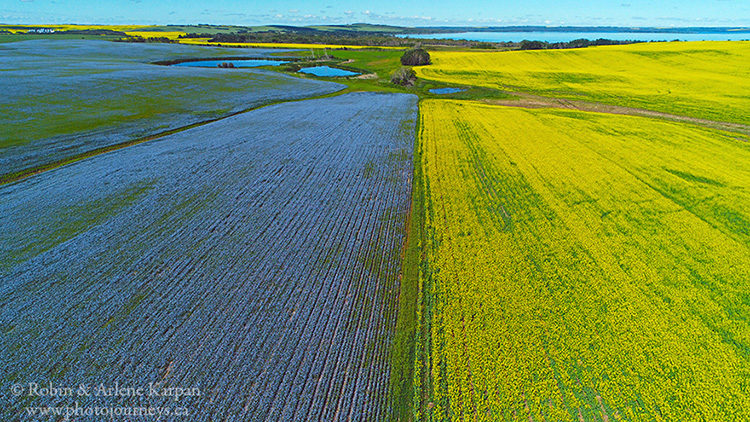
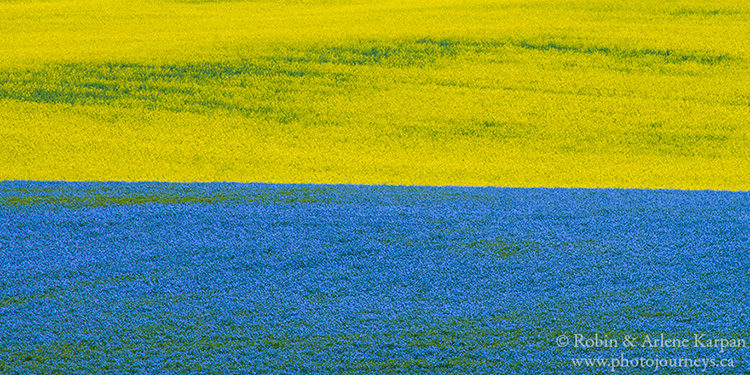
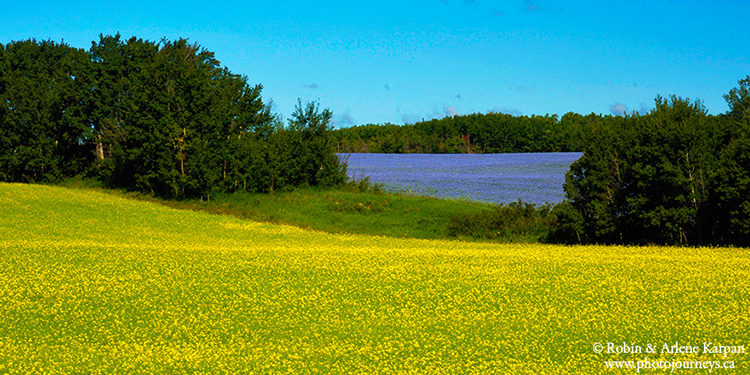
Because of crop rotations, if you see canola planted in a particular spot this year, it likely won’t be there next year. So it’s difficult to plan your photography ahead of time, other than scouting out locations earlier in the season to see what is planted where. Generally we find it easier to simply go exploring and see what we can find. Here are a few images that we came up with this summer, as well as a few from previous years.
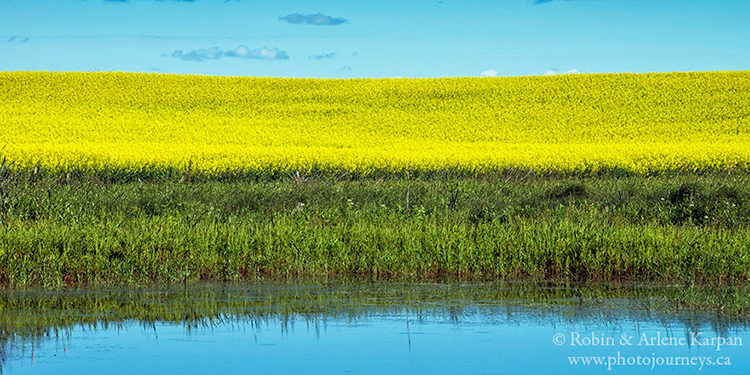
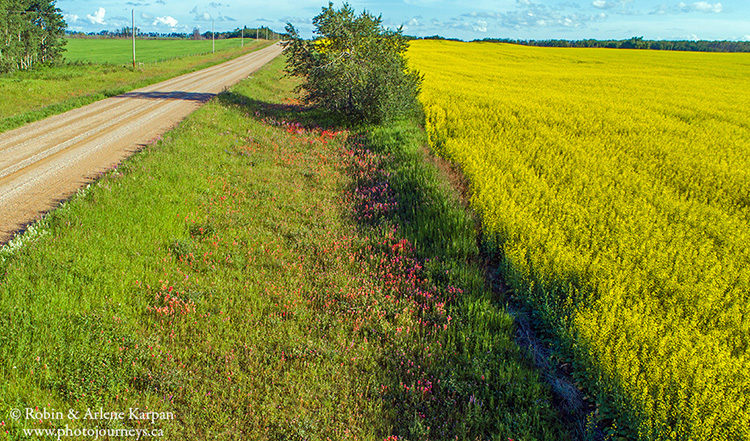
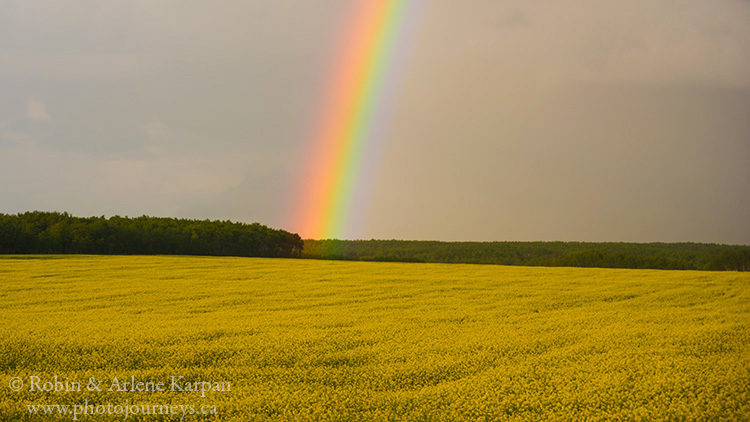
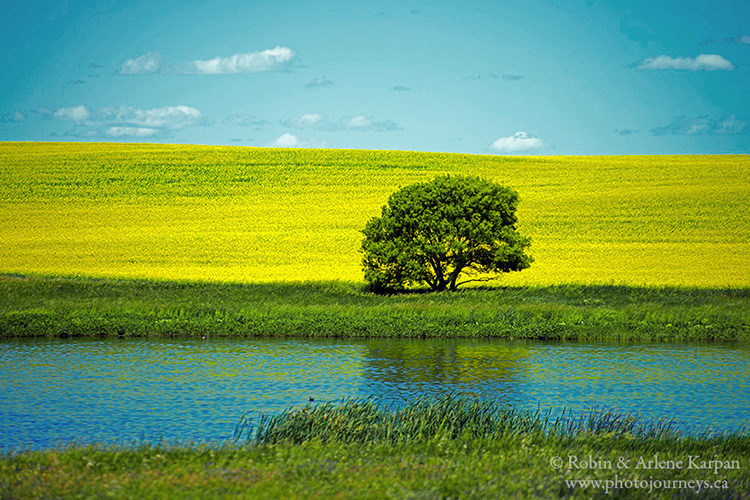
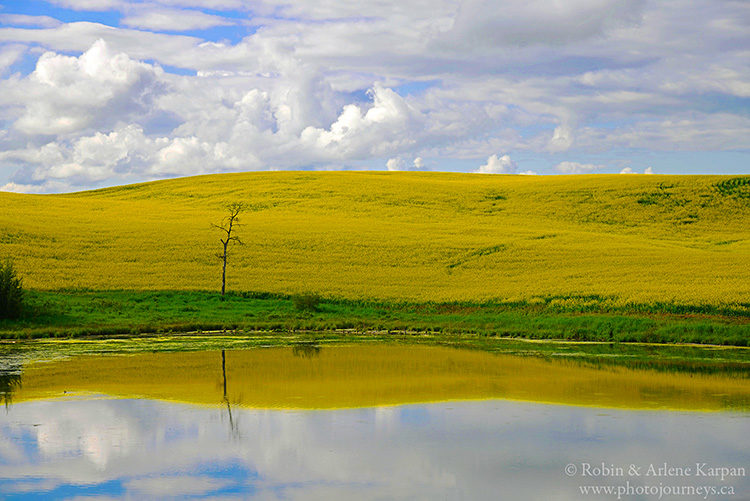
SUBSCRIBE to Photojourneys below
Feel free to PIN this article
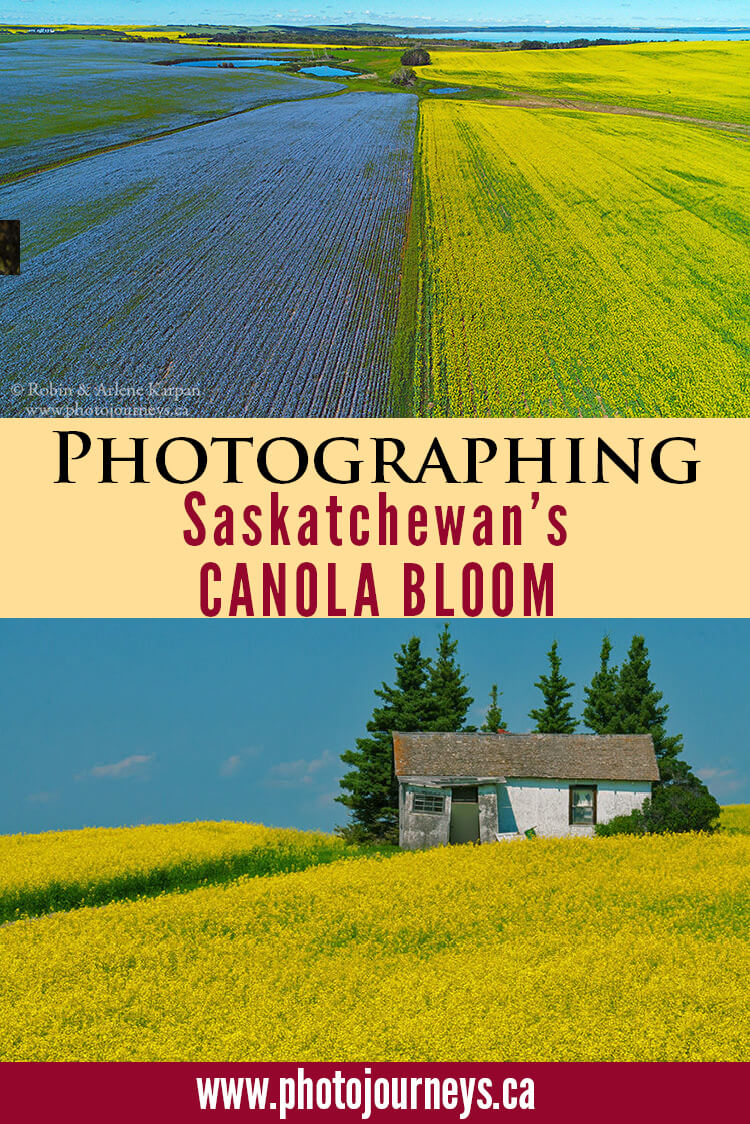


Hi there!
This is such a great article and beautiful photos! I’m interested in filming the canola bloom.
I was thinking of trying to film these locations the last week of June and was just wondering if I would be missing a lot of the yellow because I’m too early.
Would appreciate any tips you might have.
Thanks so much,
Roland
Hi Roland, We sent you a direct email about this. But, in short, late June is likely a bit early. A better bet would be mid-July, based on “average” conditions.